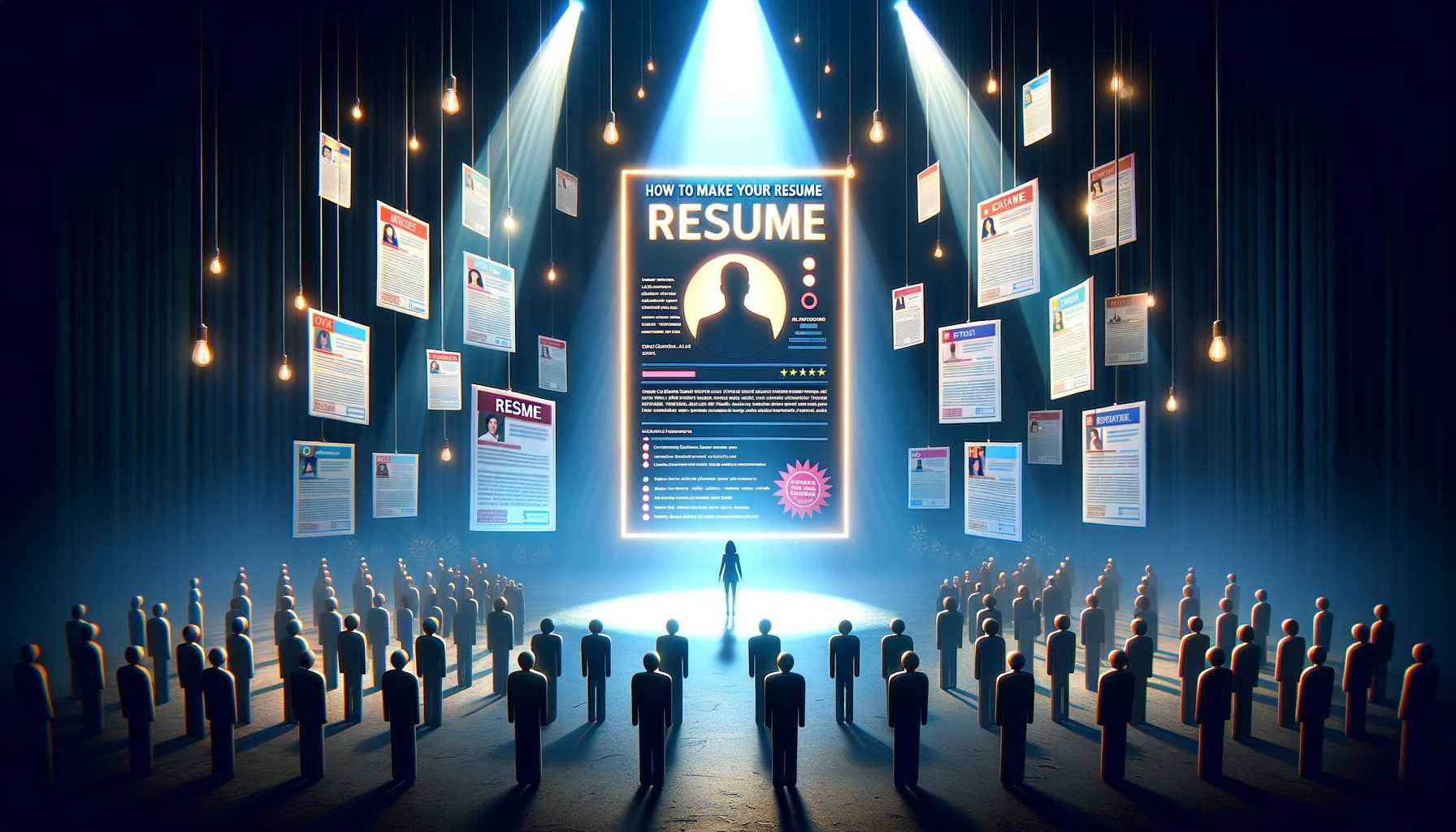How to make your resume Standouts for the Crowd
In a competitive job market, it’s very important to make your resume stand out. Your resume is your first impression to your potential employer. It need to be properly written and show off every important information, in order for you to be considered for a job.
A lot of times, people tend to use the same techniques when creating their resumes, front the fonts to choosing the same buzzwords. If your resumes must stand out above the rest, extra efforts need to be put in place to make it viewing able and on point. In this competitive market, a lot of people are vying for that position you are applying for, you need to find ways to set yourself apart from the pack.
The first thing to consider when writing a resume is what information to include on your resume.
Your will want to include your contact information, your work experience, educational background, and your skills and abilities. Note, how you present this information is also very important. For example, you’ll want to use clear and concise language, and you’ll want to highlight your most relevant experiences and skills.
Contact Information
Make sure you include your name, phone numbers, and email address. It’s also a good idea to include your LinkedIn profile or personal website, if you have one.
Contact information is very important, ensure every information you are putting out are correct, and clearly stated.
Email address: a professional email address is an important part of your resume, it helps in creating an online presence that is credible and trustworthy. It’s the first step in establishing yourself as a professional. When choosing an email address, keep it simple and easy to remember. Avoid the use of nicknames in creating your email address, or anything that could be perceived as on unprofessional.
Add a Professional Introduction
Your resume should always start with a strong opening line so as to capture the attention of the interviewer and set the tone for the rest of the interview. Make your introduction short and on point- you want to make sure the reader is with you by the time they get to the main body.
To make a strong introduction try using active keywords from the job listed, this will help to show that you are a good candidate for the position and will catch the attention of the HR.
Educational Qualifications
This is where you’ll list your educational background, including the schools you attended, the grades you earned, and the relevant coursework or projects you completed.
One thing to keep in mind is that you don’t need to include your GPA on your resume, unless you’re a recent graduate or you have an exceptionally high GPA. It’s also a good idea to list any awards or honors you’ve received. Additionally, you can include relevant extracurricular activities.
An example of how the educational section of your resume should look like:
• Smith College, Northampthon, MA
• Bachelor of Arts in English, May 2019
• Cum Laude
• Relevant Coursework: Intro to Literacy Criticism, Shakespeare, Creative Writing.
Some other things you might want to include in this section are your academic achievements, like any scholarships or academic awards you’ve received, or any honors in a society you were part of. Additionally if you are a recent graduate you can include the date off.
Work Experience
This is where you’ll list your previous jobs, starting with your most recent job and working your way back. For each job, you’ll want to include the name of the company, the dates you worked there, and a brief description of your responsibilities.
Example of how your experience section to look like:
- ABC Company, Northampton, MA
- June 2020- Present
- Market Coordinator
- Responsible for managing company social media accounts, creating content for social media and the company website, and working with the marketing team to develop and implement marketing campaigns.
Note; you don’t need to include every single responsibility you had at each job. It’s best you focus at the important and impressive ones. Additionally, you’ll want to use action verbs to describe your responsibilities. This will make your resume sound more dynamic and engaging. Avoid weak and passive words like “assisted” these type of phrases don’t really tell your strength, they present you incapable and unfit.
Skills and Abilities
This is where you’ll list any relevant skills and abilities you have that might be useful for the job you’re applying for. For example, if you’re applying for a marketing job, you might include skills like social media marketing, content creation, and project management.
Hobbies and Interest
This section is optional, but it can be a great way to show potential employers a bit more about who you are as a person. You can list any hobbies or interests that are relevant to the job you’re applying for, that also shows some of your unique skills and personality traits. It’s a great opportunity to show off any special skills or interest that might not be immediately obvious from the rest of your resumes.
References are definitely important, but they’re typically not included directly on the resume. Instead, you would usually include a line at the end of your resume that says “Reference available upon request”. That way potential employers know that you have references, but you’re not taking up valuable space on your resume with their contact details.









